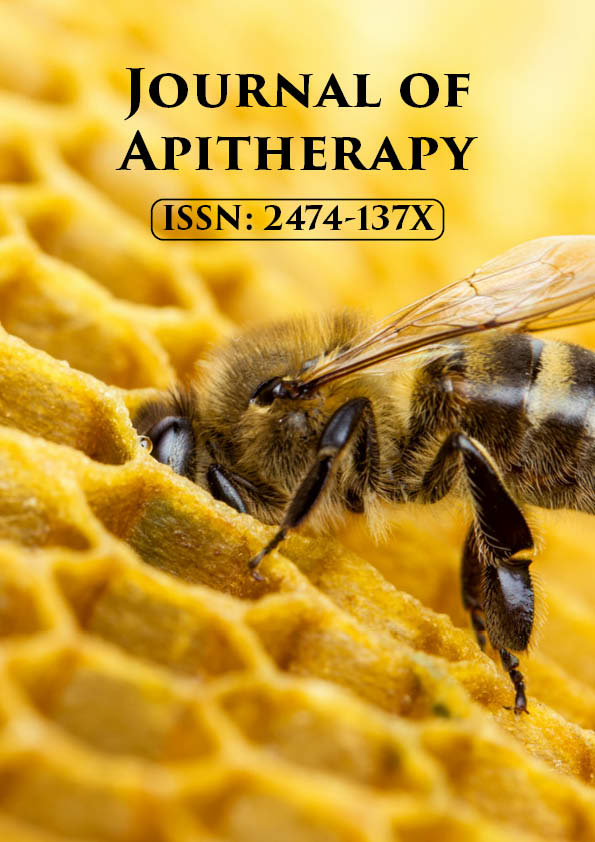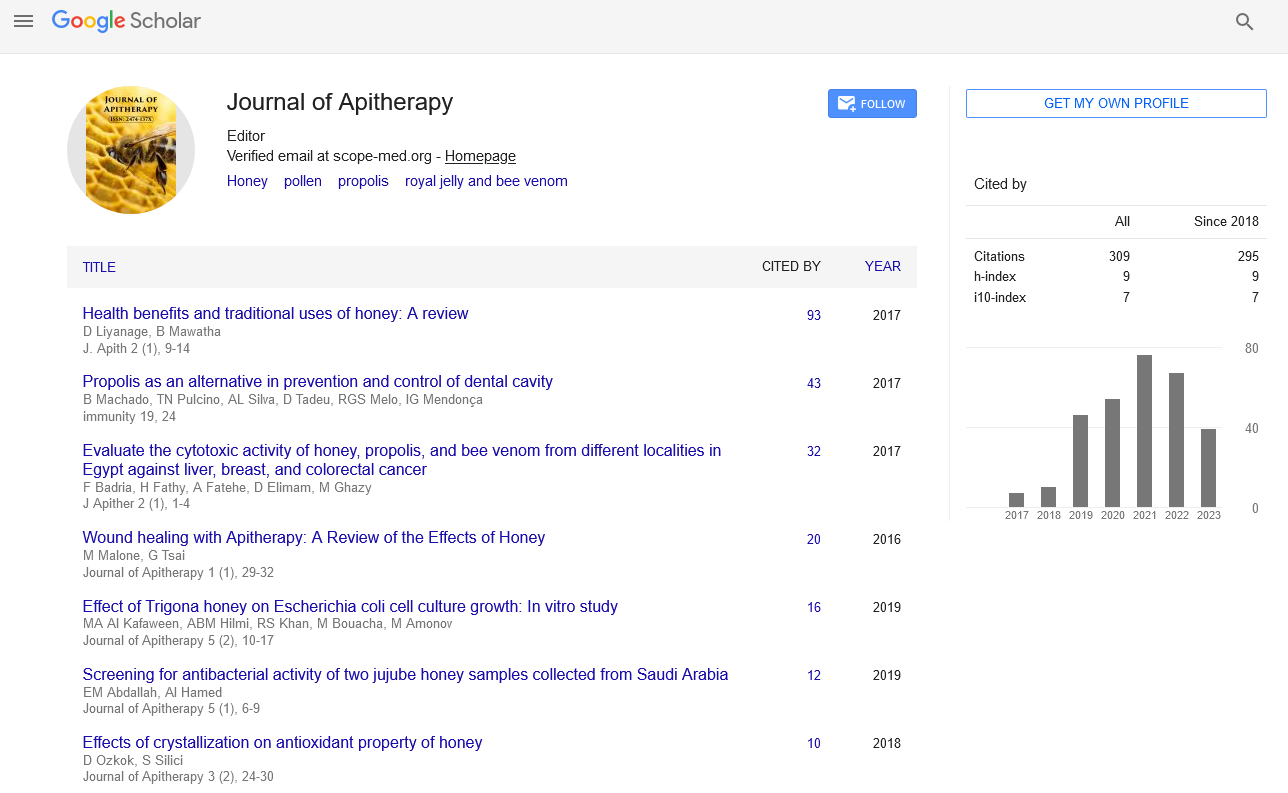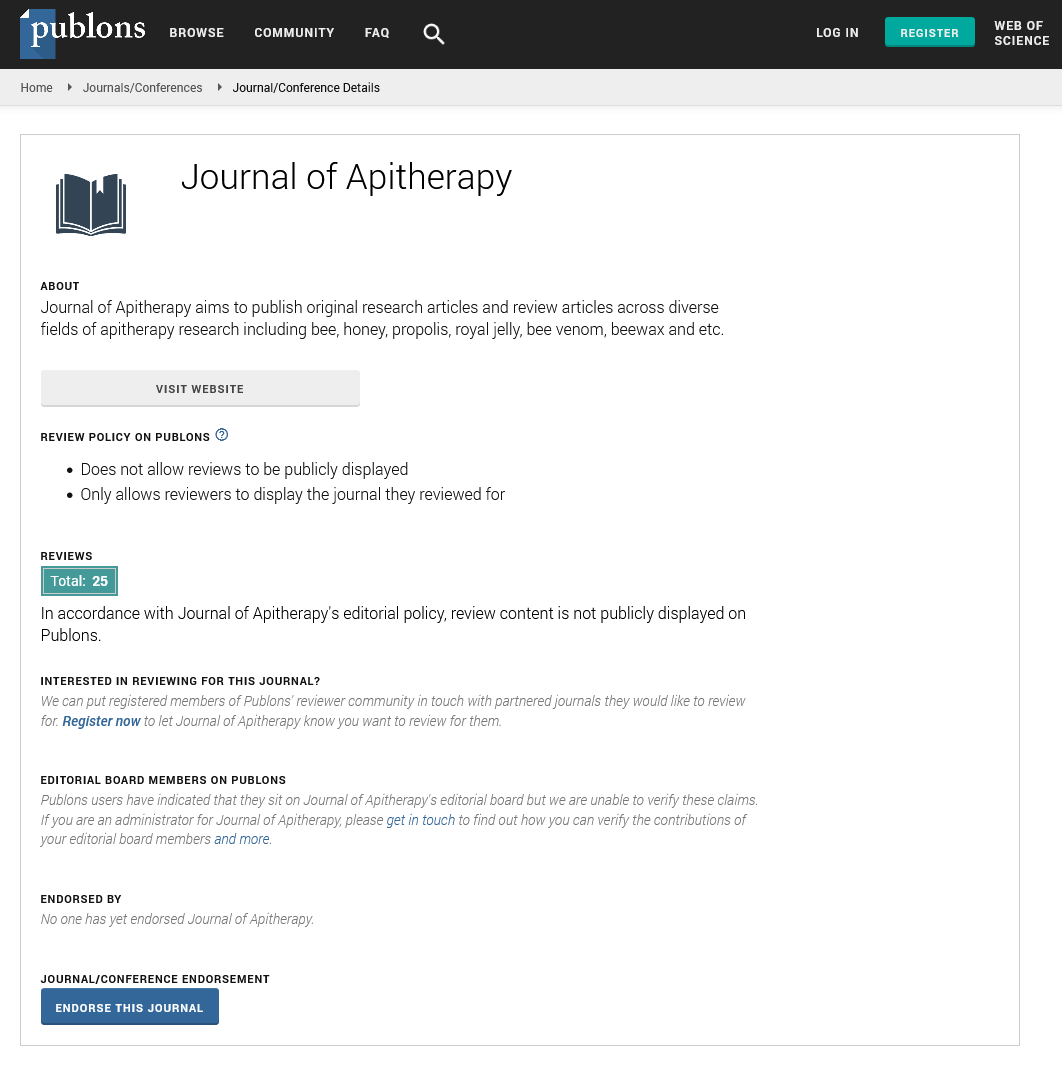Commentary - Journal of Apitherapy (2021)
The Apitourism Advances in its Research Aspects
Kazeem Adekunle Alayande*Kazeem Adekunle Alayande, Department of Apihterapy, Rhodes University, South Africa, Email: alayande_kazeem@gmail.com
Received: 03-Dec-2021 Published: 24-Dec-2021
Unlike ancient forms of health tourism, such as water exploitation and climate change, apitourism is in the early stages of development. Globally, Slovenia is one of the leading countries in the development of this type of tourism, as the first steps of apitourism were taken there. A Slovenian, Anton Janša, was one of the leading beekeepers in the 18th century, while Filip Terč is considered one of the founders of apitherapy as a branch of distinct medicine. The (historical) development of both is essential to the development of modern apitourism; the presentation of their particular development method in Slovenia is the main purpose of the paper. We found that there is a clear correlation of cause and effect between the following concepts: beekeeping - apitherapy - apitourism. In this paper we have analyzed the link on the temporary and important aspect and found that development has brought about the development of bee products and related services (apitherapy) for profit (trade); benefits to human health and therefore community (public health) should also be identified.
The bee face mask rejuvenates clear, soft and radiant skin. A face cream containing bee venom has an anti- aging effect on the skin. Bee venom relieves and can even eliminate the problems associated with rheumatism. The use of propolis in oral hygiene reduces the formation of biofilm and tartar, as well as the prevention of periodontitis. Protecting the destination and its environmental diversity is a major step in sustainable tourism. We have all seen situations where destinations are severely compromised and are constantly threatened with neglect in matters of sustainability. Remember, destinations are the reason why tourism is so original. It is therefore important to protect their diversity by using their sustainable power. Slovenia is an excellent example of sustainable tourism because of its practical achievement of bringing apitourism to the picture.
Apitourism has been experiencing growing interest among travelers in search of a more fulfilling life. They want healthy and green tourism jobs, and Apitourism offers just that. This strong demand has helped local people and beekeepers to take pride in their extensive beekeeping-based travel.
The activities of Apitourism are more than just a visit to a hive. It provides many opportunities for visitors to learn not only the health of bees but also the health and activity of beekeepers. And tasting honey is a major activity that has always attracted tourists. Promotes new recipes for syrups, wine, beer, and royal jelly. Growing numbers of visitors are hunting for a taste of pure natural honey combined with a variety of other activities that help create a memorable experience. From Apitherapy, Apicuisine, Workshops, beeswax candles to visiting Bee Museums, all these various activities are in demand.
Destinations can offer an expansive range of honeybee tourism gests by working together with their stakeholders, policymakers, experimenters, beekeepers, and hospitality and tourism associations to present the most indelible recollections. The benefactions that apitourism is making have been inspiring numerous destinations in designing Apitourism systems. Destinations similar as Trinidad & Tobago, Greece, New Zealand, Italy, Uganda, and others are developing analogous tourism products and gests, both indoors and outside. There are still numerous destinations that have coffers and the amenability to initiate Apitourism.
Acknowledgement
The authors are grateful to the journal editor and the anonymous reviewers for their helpful comments and suggestions.
Conflict of Interest
The authors declared no potential conflicts of interest for the research, authorship, and/or publication of this article.







